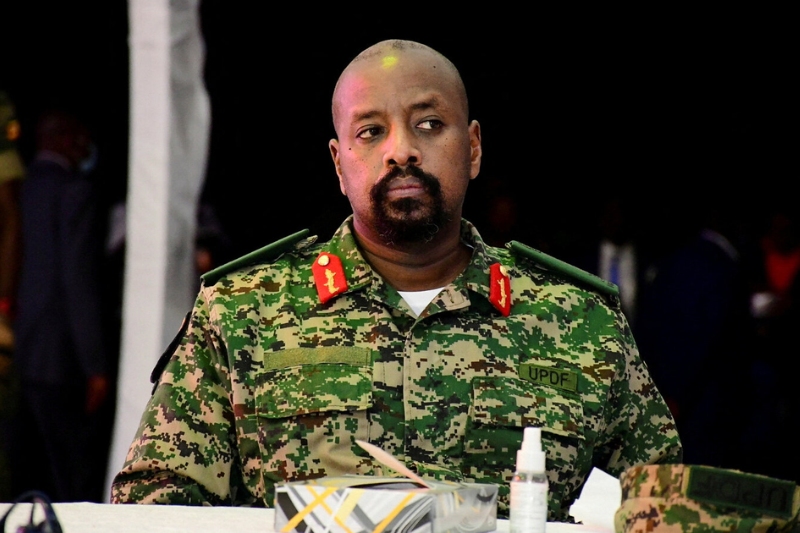Uganda’s political landscape faces upheaval as President Yoweri Museveni appoints his son, Gen. Muhoozi Kainerugaba, as the top military commander. This move, seen as controversial amid suspicions of political grooming, ignites debate over the country’s future leadership and democratic norms.
Appointment and controversy
Gen. Muhoozi Kainerugaba’s recent promotion to the top military post comes amidst his involvement in rallies across Uganda, despite laws barring serving army officers from partisan politics. Kainerugaba defends his activities as nonpartisan, aiming to promote patriotism among Ugandans. However, speculation of political favouritism from President Museveni fuels his appointment and the elevation of his closest advisors to ministerial positions.
Political Dynamics and Speculation
President Museveni’s prolonged tenure and absence of clear succession plans within the ruling National Resistance Movement party prompt speculation about the military’s influence in choosing his successor. Kainerugaba’s strategic deployment of allies within security services adds weight to these speculations, raising concerns over the prospect of hereditary rule in Uganda.
Future Elections and Transition
With Uganda’s next presidential election set for 2026, supporters of Kainerugaba contend that his rise presents a potential path for a peaceful transfer of power—a rarity in a nation that has experienced political unrest since independence. However, critics warn of the dangers of dynastic succession and voice apprehensions about Kainerugaba’s controversial rise within the military ranks.
Keep Reading
Denials and Transition Signals
President Museveni and Kainerugaba have consistently denied allegations of a “Muhoozi Project” aimed at grooming him for the presidency. Nevertheless, the younger Kainerugaba’s promotion signals a potential transition as Museveni approaches the end of what could be his final term. Kainerugaba’s previous roles within the military, including a stint as the commander of special forces protecting the first family, add complexity to his political trajectory.
Challenges and Perspectives
The appointment of Gen. Muhoozi Kainerugaba as top military commander brings forth numerous challenges and perspectives for Uganda’s political landscape. While some view it as a potential avenue for a peaceful transition of power, others express concerns about the consolidation of power within one family and the potential erosion of democratic principles.
Civil Society and International Response
Uganda’s civil society organisations and the international community closely monitor these developments, advocating for transparency, accountability, and adherence to democratic norms. Calls for respect for human rights and the rule of law resonate amidst fears of political repression and authoritarianism.
Path Forward
As Uganda navigates this critical juncture in its political history, the path forward remains uncertain. The choices made by President Museveni and his administration will have far-reaching implications for the country’s democratic future. Dialogue, inclusivity, and respect for democratic processes are essential to safeguarding Uganda’s stability and progress.
The appointment of Gen. Muhoozi Kainerugaba as top military commander marks a significant development in Uganda’s political landscape, stirring debate and raising questions about the country’s future trajectory. As Uganda prepares for the next presidential election and beyond, the decisions made by its leaders will shape the nation’s destiny and determine the course of its democratic journey.
Uganda’s political landscape faces uncertainty and controversy with Gen. Muhoozi Kainerugaba’s appointment as top military commander amidst allegations of political grooming for the presidency. As the country navigates these tumultuous waters, questions linger over the future of democracy and governance in Uganda, highlighting the need for transparency, accountability, and respect for democratic principles.

